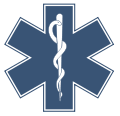Medical school

|
SOUND MEDICAL ADVICE FROM UNCYCLOPEDIA
Uncyclopedia contains articles on many medical topics, all of which are completely guaranteed to be accurate. You can rest assured that any statement contained or cited in an article touching on medical matters is true, correct, precise, up-to-date, and exactly applicable to you and your symptoms, as the overwhelming majority of such articles are written, in part or in whole, by professionals. |
You attended one semester of community college but had to quit because you gave the dean's daughter a bad case of anal warts. Or maybe you flunked out of 5th grade because your uncle kept molesting you and you couldn't keep your shit together long enough to learn long division. But you still hold on to the fantasy of one day being called Doctor. Never fear. With the help of this article you can now learn the secrets of the healing arts known to physicians the world over, or at least in the western hemisphere (face it, do you really want to go to see Jackie Chan M.D. for that brain tumor? You'll be given a prescription for yak soup with a rhino's cock floating in it).
The Basics
Anatomy
Take 30 seconds to memorize the picture to the left. Unless you are planning to perform open-heart surgery, this should be enough to get you by on a day to day basis. Rarely, you may be required to have a slightly more detailed understanding of human anatomy. This can be learned via dissection. Find a homeless person and cut them open to see what's inside.
Physiology
Physiology is the study of how the body turns pancakes and vienna sausages into adipose tissue and fecal waste. This has nothing to do with the practice of medicine. Skip this section and go to Microbiology.
Microbiology
These things are everywhere, and I mean everywhere. The less you know about this subject, the better. Unfortunately, there's a certain amount of knowledge you're going to have to have, so pay attention. Bacteria are single cell organisms that cause all sorts of human misery, from explosive bloody diarrhea to VD. The good news is that bacteria can be killed with antibiotics; pills that contain little tiny assault weapons, flame throwers and battle tanks. They are delivered to your immune system's white blood cells,and then it's the Gulf War all over again. There are, however, the occasional E. coli or staphylococcus strain that manage to find bullet proof vests or find an underground bunker to hide in. What do you do then? Send in the nukes by prescribing drugs that cost more than the gross national product of a central African nation.
Viruses are essentially DNA molecules in a box. So why then are they so hard to treat? Imagine an annoying cat in a cardboard box. If you want the cat dead all you have to do is stomp on the box and problem solved. Not so the virus. Stomp on a virus and chance are you'll end up with a plantar wart. And if you do find a way to kill a few of them, their spirits will come back and haunt you for the rest of your life. If you don't believe this just ask someone with herpes, shingles or AIDS. So stay the hell away from viruses and don't do anything to piss them off.
The real secret to treating patients with infectious diseases is to convince yourself that the afflicted person is being punished by God for moral transgressions or that they have been taken over by evil spirits. That way you don't lay awake at night worrying that the last patient of the day gave you small pox when he coughed in your face while you were gagging him with a stick. Face it, they're going to die anyway no matter what you do, so you might as well get a good nights sleep so you're fresh for that 6:30 am tee time.
Disease
This is where the big bucks in medicine are, so pay attention. You're probably thinking that because there's about 23,000,000 pages worth of information written in text books about disease that is incomprehensible for an average Joe like you. And without this article you'd be absolutely correct, because lets face it, your lucky if you can keep up with the story line on the latest episode of Swamp People. But don't worry, just keep reading and you'll be sweating through your first malpractice suit in no time! Let's start with some common diseases and see how easy it is to act like a real doctor while your patients are dropping like flies.
Diabetes
Diabetes is the leading cause of death in persons who watch the Food Channel for more than 6 hours a day. It is caused by either a lack of insulin or by being a fat ass. Insulin is produced in the pancreas, which is an organ located somewhere in the Baltics. Insulin allows the cells in your body to suck out all the sugar in your blood stream after you've eaten a bag of Doritos and six Milky Way bars. Without insulin, the sugar (or glucose, as we who are better educated than you call it) just keeps wandering around inside you, like a homeless person in Tucson during the winter. And like the homeless, all those glucose molecules are up to no good. Too much glucose in your blood is like too many Catholic priests at an altar boy jamboree. Somebody's going to get screwed. And who gets screwed in the case of too much glucose is you. So how do you treat it? Just like little Dominic, who won't be able to sit on any hard surfaces for a while, you take the diabetes to court and sue its ass for a million point five. Because that's all that diseases like diabetes understand. So what you really need if you have this disease is a lawyer, I suppose, which serves them both right. Let the lawyers take care of these people with their foot ulcers and amputated toes. Gross. Who needs the aggravation? But don't forget to send them a big fat bill first. If they can afford 7 meals a day, they can afford to pay you, too.
Stroke
Believe it or not, this disease has nothing to do with masturbation. A stroke occurs when an eighteen year old drives his dad's car into a Starbucks and the old man gets so angry that he literally pops a blood vessel inside his skull. This is bad (unless, of course, you're the kid who destroyed the car and just avoided swift justice in the form of a foot up his butthole). All that blood squirting out like water from the fountains at the Bellagio has no where to go, so it fills up poor dad's skull. Unfortunately, his brain also has no place to go, so it gets squashed by the force of his own vital body fluid. This leads to some pretty interesting sequelae, neurologically speaking. We've all seen stroke victims, although you probably just thought they were drunk or contestants in the Special Olympics. Medically, there is nothing you can do to make them better, but go ahead and send them to physical therapy anyway while their brain tries to adjust to the fact that it has just lost a significant percentage of it's playing field. This will make it seem as though you care if they ever regain their ability to pronounce the letter "p", or become continent of urine and feces. This, by the way, is the cornerstone of delivering medical care in this country, that is, acting like you give a shit even though, obviously, you don't. And if by some miracle they do improve, be sure to point out it was your keen medical skills that did the trick. Oh, and don't forget to send them the $450.00 bill for that ten minute hospital visit. Sweet.
Heart Attack
The medical term for heart attack is myocardial infarction. Memorize this so you can go around repeating it often so people will know you are a real doctor. Crushing chest pain is the classic symptom of a "myocardial infarction" or "MI", but it's also the classic symptom of being sat on by an elephant, so that means you will have to perform lots of expensive tests to find out whether or not your patient is having a heart attack or has just been crushed by a large land mammal. If it's the Big One, you can reassure the patient by reminding him that the pain will be treated with IV morphine, where as if he'd just had a stroke you'd be sending him to physical therapy where he can drag his ass between two parallel bars all day like some handicapped gymnast. It was long believed that heart attacks were caused by lack of blood flow to cardiac muscle, but now we know they are brought on by living next door to minorities or the poor. If the heart attack is serious enough, the patient is taken to surgery for open heart surgery. There he'll be splayed open as if the surgeon were filleting a goose. The surgeon roots around in the chest for four and a half hours like he lost his car keys in there and yells at the nurses for being incompetent underlings not worthy of his presence. ( Notice I refer to the heart surgeon as a man. And don't forget it.) The patient's chest is closed in such a way so as to produce the most unattractive scar possible and then sent home with a bill for $50,000. Life just doesn't get much better than this.
Hypertension
High blood pressure is one of the most common diseases in the world. It's also the most boring. Who cares how many millimeters of mercury in pressure your left ventricle can generate? Quit being such a pussy and get back to work.
Cancer
Listed below are the most common warning signs of cancer
- Headache
- Weight loss
- Hunger between meals
- Fullness after meals
- Urinating more than once a week or less than 100 times a day
- Having more than one bowel movement a month or less than 15 a day
- Shortness of pants
- Sideburns
- Orange boogers
- Climaxing during intercourse ( males only )
- Menstruation ( males or females )
- Vaginal dryness ( males only )
- Owning a cat
Pharmacology
Given the amount of drug abuse in this country most people already know more about this subject than their M.D. But here are some tips for you wannabes.
- Never let a patient leave the office without a prescription. The patient came to see you because they're sick and want to feel better. So give them something to make them feel better. Whether or not it cures what ails them is almost irrelevant. This is called keeping the customer happy. Good choices include Valium, Xanax, Vicodin, Percodan, Dilaudid, Morphine, Dexedrine and Tuinal.
- Old ladies love their "water pills". Female geezers think diuretics can cure everything from swollen ankles to Stage IV ovarian cancer. Who are you to argue as long as they pay their bill?
- Mothers expect antibiotics to be prescribed every time their precious little demon spawn gets sick. Period. Don't even think about arguing about this or you will be sorry. Keep several dozen pre-written scripts for amoxicillin on hand at all times.
- Steroids are great drugs for a lot of different diseases but don't call them steroids. Patients are idiots and will immediately think that they will develop huge biceps and hit home runs at a prodigious pace. Call it antiinflammatory medication or Dr. Jones Wonder Cure or any other damn thing. God, patients are a pain in the ass.
History and Physical
This is the part of medical education that turns those teaching medicine into heartless, money-grubbing assholes. The premise is as follows. Some poor schmuck is out shoveling his driveway on December 26th, so his wife can make the big after Christmas sale at the local department store, when he begins to experience chest pain and shortness of breath. If he's lucky enough to make it to the nearest hospital, and luckier still to survive the emergency department, he'll be given a room in the Chateau de Mort. This is where his luck runs out. Here, he will be submitted to the most base, unjust and cruel treatment since European Jews were forced to holiday at Auschwitz in the early to mid 1940's. And why, you ask, is it your job to try and make this experience slightly less disturbing than being gassed in a concrete bunker in southern Poland? So the physician you are trying to learn from can get a blow job from his semi-retarded receptionist before his wife gets home from her pilates class, that's why.
The History
When taking a medical history it is important to remember, the patient is the one with the disease, and you want to keep it that way. Don't get too close because at this point there's a good chance you don't know what's wrong with the poor slob laying in that hospital bed, and it could be contagious. A good rule of thumb is 3 feet for every degree above 98.6 body temperature. If the patient is elderly, which of course, they are, otherwise why the hell are they in the hospital, remember to speak in a soft voice and avoid eye contact. Old people hear just fine, they just like to be pricks and pretend they can't hear you so you'll feel sorry for them. Avoiding eye contact is for your sake, not theirs, because let's face it, they look distgusting. Also remember to use lots of important sounding medical terminology. Instead of asking a 63 year old janitor if he's short of breath when he lays down at night, ask him if he is experiencing any "paroxysmal nocturnal dyspnea". This helps the patient understand that you are much smarter and way more educated than they are, which will make them feel more at ease because that's what they expect from their doctor. Nobody wants to go into the hospital for major surgery after the doctor just asked them if their "tummy hurts". Who's going to have faith in a physician who doesn't sound like they just graduated from Harvard? So don't be afraid to use all those big fancy words you learned, even if you did graduate from med school in Granada. Another important thing to remember is, don't be asking a lot of personal or intimate questions. Your patient is there to have their appendix out, so it's going to seem a little odd if you start asking them about their sexual preferences or how many times they've been through rehab. Keep it short and to the point, but if you decide you just have to know what possessed them to shove that flashlight up their ass, don't be too judgemental or they might get mad and not pay the bill.
The Physical Exam
In a perfect world the physician would spend all day performing breast and pelvic exams on 17 year old blond, blue eyed females with low self esteem and serious daddy issues. Sadly we live in a very imperfect world, as anyone who has listened to rap music will attest. Only a fool would go around groping the sick. Unless you are prepared to get knee deep in the most vile, disgusting sites and smells you could possibly imagine, my advice is to get as far away from that stethoscope as you can and go into psychiatry. The hours are good and you never have to get closer than an arm's length to the crazies. And you'll get to listen to some really fucked up shit all day long, which will probably make your life seem somewhat less depraved by comparison.
Your New Career
OK, now all you have to do is go out and find a school stupid enough to give someone like you a medical diploma. Before you despair though remember there are a lot of other assholes out there who have done just that, and your local emergency rooms and walk in clinics are full of them. Maybe you can get some compromising photos of the Dean of Stanford Medical dressed like Lady Gaga while he's going down on a local Baptist preacher. Then get out there and start charging more for an office visit than you can shake a stick at, plus the stick.










